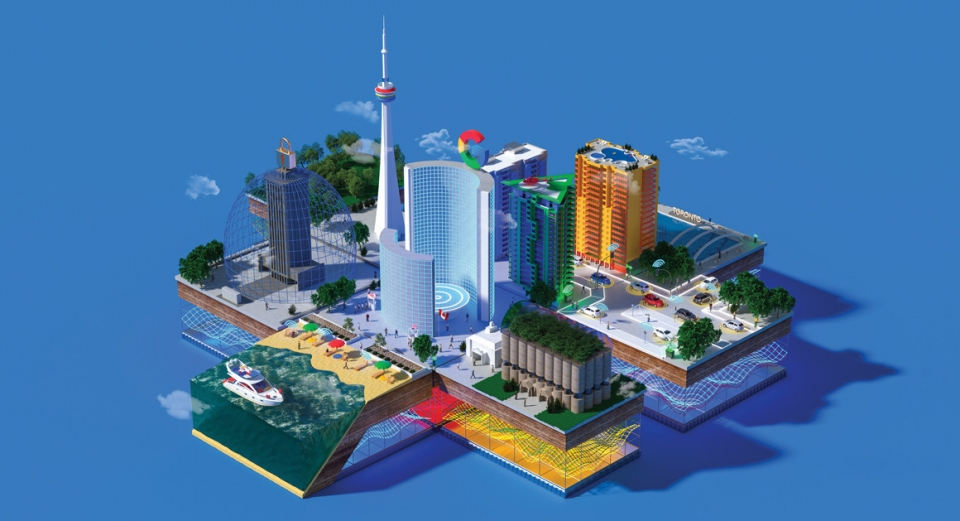It could be the coolest new neighborhood on the planet—or a peek into the Orwellian metropolis that knows everything you did last night.
...
Toronto’s eastern waterfront is bleak enough that Guillermo del Toro’s gothic film The Shape of Water used it as a plausible stand-in for Baltimore circa 1962. Says Adam Vaughan, a former journalist who represents this district in Canada’s Parliament, “It’s this weird industrial land that’s just been sitting there—acres and acres of it. And no one’s really known what to do with it.”
That was before Google.
....
Toronto’s choice of the Google-affiliated firm immediately captured the attention of urban planners and city officials all over the world; magazine stories trumpeted “Google’s Guinea-Pig City” and “A Smarter Smart City.” Still in its early days, the partnership has left people curious but wary. Google? What does a tech company know about running a real live city?
In one sense, what’s perhaps surprising is that it has taken this long. Silicon Valley’s innovators have long had side obsessions with making the world a better place, driven largely by the confidence that their own brainpower and a near-total disregard for tradition can break old logjams. PayPal co-founder Peter Thiel helped seed the “seasteading” movement to create offshore libertarian paradises; the tech incubator YCombinator is currently running a public-policy experiment in Oakland, California, giving residents a guaranteed monthly stipend to see how it might improve their quality of life.
The notion of the feedback-rich “smart city” has circulated for years, and in practice has mostly taken the shape of centuries-old cities like New York or Boston adopting sensor-enabled stoplights or equipping their residents with an app for spotting potholes. But the real dream, a place whose constant data flow lets it optimize services constantly, requires something different, a ground-up project not only woven through with sensors and Wi-Fi, but shaped around waves of innovation still to come, like self-driving cars. Thanks to a host of technological advances, that’s practical now in a way it never has been before. Mass-produced sensors now cost less than a dollar apiece, even for hobbyists; high-speed broadband and cheap cloud computing mean that a city can collect and analyze reams of data in real time.
....
